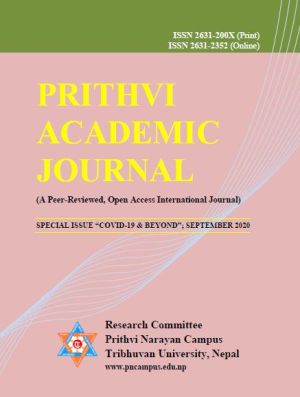Online Classes as a Paradigm Shift in Teaching and Learning Culture
DOI:
https://doi.org/10.3126/paj.v3i1.31285Keywords:
ICT, online learning, paradigm shift, traditional teaching model, virtual contextAbstract
This article shows a shift that is brought about by the integration of information and communication technology (ICT) in teaching and learning activities in Nepal. The objective is to investigate how online classes have transformed traditional teaching models. It reviews the effectiveness and challenges of online classes as the world is rapidly moving to the digital era. The policies and plans of the Government of Nepal are directed to integrate ICT tools to transform traditional models of teaching realizing the necessity and importance of using technology in education. The proper application of technologies has transformed the practices and procedures of all forms of venture within education, business, governance, and personal life. Online classes apply flexible delivery modes to help and address the issues of the diverse potential learners by providing multiple pathways and opportunities for those seeking further education in future although they have some challenges. During the COVID-19 pandemic, all schools and universities in Nepal have switched their regular classes into online classes to give continuity in teaching and learning. This pandemic can be an opportunity to accelerate technology-based learning in academic institutions, developing online teaching and learning infrastructure.




